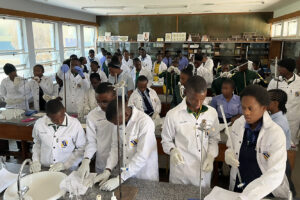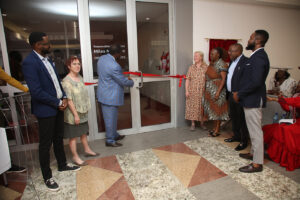The University of Namibia (UNAM) and the Namibian Correctional Services (NCS) recently formulated a Joint Plan of Action for the next five years, marking a turning point for the institutions’ Memorandum of Understanding.
This Memorandum of Understanding (MoU) was signed in November 2021 by the heads of the two institutions namely, Professor Kenneth Matengu, UNAM Vice Chancellor, and Commissioner-General Raphael Hamunyela of NCS, committing toward the realisation of mutual objectives across common areas of collaboration.
These areas encompass mutual cooperation in research, programme development and training of staff, offenders and students, as well as access to facilities and professional equipment for the purposes of training, education and improved services.
According to Dr Rachel Freeman, Head of UNAM’s corporate social responsibility arm, UNAM Cares, a Joint Technical Committee (JTC) of 10 members was created to fulfil the expectations and deliverables under the MoU.
“The main tasks of JTC involve the development of a Plan of Action (PoA) and to spearhead the implementation of activities specified under the MoU,” said Dr Freeman. In line with this task, JTC recently convened to formulate a PoA which will kick-start the joint activities under the MoU.
She further outlined that these activities include joint educational programme development, vocational training, capacity building for staff, students and inmates, research and innovation projects, food production, soap production, material development and manufacturing, among others.
Joint Technical Committee
The JTC members’ responsibilities include resource mobilization, interaction, consultation and close collaboration with other offices within the institutions where required, developing short-term and long-term plans for the implementation of activities under the MoU. Their duties furthermore include the undertaking of feasibility assessments, conducting skills audits, infrastructure audits and assessing existing projects for value addition, but also to identify new potential activities that could lead to innovation, manufacturing and production in order to yield tangible results that bring positive social changes to communities and other intended beneficiaries.
In light of these responsibilities, JTC has a mandate to accomplish calls for good cooperation, strong support and genuine involvement from colleagues and officers under the realms of the two institutions in contributing toward the realisation of the MoU’s goals.





